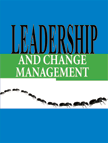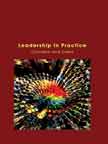SKS Microfinance IPO: What Went Wrong?
|
ICMR HOME | Case Studies Collection
»
Leadership and Entrepreneurship Case Studies 
Custom Search
Please note: |
|||||||||||||||||||||||||||||||||||||||||||||||
Abstract:would lead to compromising on the basic principles under which an MFI is expected to provide funds to the poor. SKS’s shares showed good initial performance. However, this proved to be short-lived and in the following weeks, they witnessed a sharp decline. Analysts wondered whether the dramatic loss of investors’ faith stemmed from the fact that the SKS CEO had exited the company, or from attempts to regulate the industry, or from arguments against the idea of an IPO in the microfinance industry. Investors were clueless, wondering what had gone wrong. Much of the disaster was associated with some suicides by farmers which allegedly exposed the dark side of microfinance according to some experts. The industry’s image was to a great extent tarnished by the fact that some farmers who were associated with MFIs had committed suicide, allegedly due to the wrongful practices of some microfinance industry players, particularly of their agents. Reports of rampant disbursement of micro loans and coercive collection of debt by MFI agents were thought to be major reasons for the debtors’ plight, evoking strong reactions against the MFIs from almost all sections and the government. The industry, which till then, had enjoyed an enviable reputation, suddenly found a shadow cast over it. The SKS stocks had been touted as one of the best investment opportunities, enjoying a unique position in the capital market in which it had no close competitor. It had the best performance track record to bank upon over the year in a market which was estimated to be one of the biggest in the world for microfinance growth. But the company was now struggling to sustain the trust of investors, which it had earned over the years. Issues:
» This case study is most suitable for courses in Micro Finance, Social Entrepreneurship, Ethics, Management Information System, and courses involving Business Environment of the micro finance industry in a developing country. Contents:
Keywords:Leadership, Leadership style, Servant leadership, Intrepreneurship, General Management, Management Style, Strategy, Change management, Glass ceiling, Vision, Communication, Power, Culture, Turnaround, Xerox 
Custom Search
|
||||||||||||||||||||||||||||||||||||||||||||||||
Case Studies Links:-
Case Studies,
Short Case Studies,
Simplified Case Studies.
Other Case Studies:-
Multimedia Case Studies,
Cases in Other Languages.
Business Reports Link:-
Business Reports.
Books:-
Textbooks,
Work Books,
Case Study Volumes.








